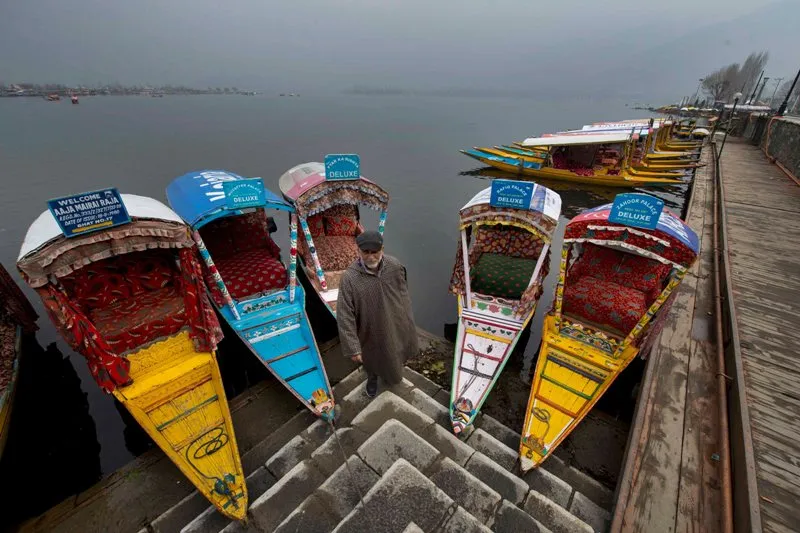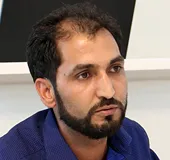Jolted by mass dissent against open nepotism in recruitments in the Khadi and Village Industries Board (KVIB), Chief Minister Mehbooba Mufti sought to divert public discourse in her state by visiting New Delhi and raking up the ‘conflict over Kashmir’ to downplay the ‘conflict in Kashmir.’
In her meeting with Prime Minister Narendra Modi last week, the Jammu and Kashmir chief minister highlighted the “immense suffering” of Kashmiris owing to the “precarious situation" along the LoC and called for de-escalation of violence between India and Pakistan. But she did not mention a word about any action her government is planning against the all-pervasive corruption in the state, which has also caused ‘immense suffering’ to her people.
Besides other factors, the genesis of the worsening ‘conflict in Kashmir’ can be traced back to decades of government apathy, misgovernance, nepotism and corruption, which has caused severe resentment among the Kashmiri youth. But in recent years, instances of brazen corruption have reached alarming proportions.
Besides other factors, the genesis of the worsening ‘conflict in Kashmir’ can be traced back to decades of government apathy, misgovernance, nepotism and corruption, which has caused severe resentment among the Kashmiri youth.
The arbitrary appointments of Syed Aroot Madni as CEO of the state’s KVIB and Rufiada Mansoor and Sahara Sayeed as health and nutrition mobilisers under the Integrated Child Development Scheme (ICDS) in February 2018 have one thing in common. None of the three are either qualified or eligible for their respective jobs, but they have the distinction of being related to the ruling party elite. Madni happens to be the cousin of the PDP president and Jammu and Kashmir Chief Minister as well as the son of the party’s vice president Sartaj Madni. Rufiada is the daughter of PDP’s general secretary and KVIB vice-chairman Peer Mansoor Hussain, while Sahara is the daughter of Mohammad Sayeed Khan, brother-in-law of Sartaj Madni.
The letter written by law secretary Abdul Majid Bhat, who was also the controller of the KVIB recruitment exam, to IGP-CID has further added to the chaos. Hinting that the examination was rigged, Bhat has asked the police to conduct an “in-depth verification” of the examination process. Stung by this unprecedented development, the chief minister hurriedly announced a high-level inquiry by a committee headed by chief secretary B.B. Vyas, but conveniently forgot to issue any formal order in that regard.
 Jammu and Kashmir Chief Minister, Mehbooba Mufti, at a youth convention in Jammu, 4 March | Source: PTI
Jammu and Kashmir Chief Minister, Mehbooba Mufti, at a youth convention in Jammu, 4 March | Source: PTI
Not much was left to the imagination, therefore, when a senior official in the state’s General Administration Department (GAD), was quoted in a media report stating that “no order has been issued so far and unless there is order the inquiry can’t take off.”
It’s the same case with mass government recruitments through examinations conducted by Jammu and Kashmir Public Service Commission (JKPSC) and schemes such as the Rashtriya Madhyamik Shiksha Abhiyan (RMSA), which have become victims of corruption and political favouritism, where blue-eyed candidates get selected at the expense of the deserving aspirants with increasing regularity.
The recent questionable appointments of the kith and kin of influential ruling party politicians to plum government posts have plummeted the politics of appeasement in the state to a new low. Worse, the growing instances of brazen nepotism and corruption are now threatening to foment further social and economic unrest in the strife-torn state. The rampant misuse of power and opportunism has created an uproar among the youth in the state where the rate of unemployment of 24.6 percent in the age group of 18-29 years is nearly double the national average of 13.2 percent. Obviously, such high unemployment rate is not merely due to a lack of job opportunities or lack of education and requisite qualifications of the Kashmiri youth.
The recent questionable appointments of the kith and kin of influential ruling party politicians to plum government posts have plummeted the politics of appeasement in the state to a new low.
The CMS-India Corruption Study 2017 placed Jammu and Kashmir among the top corrupt states in India, stating that 84 percent of the people surveyed perceived increased corruption in public services. The state has for long been also accused of misusing Central grants and financial irregularities. A report published by The Hindu states that Jammu and Kashmir received ₹1.14 lakh crore (10 percent) of all Central grants given to states over the 17 year period of 2000-2016, despite having only one percent of the country’s population.
That means Jammu and Kashmir, with a population of 12.55 million according to the 2011 Census, received ₹91,300 per person, while Uttar Pradesh, the country’s most populous state, received ₹4,300 per person over the same period. The government has also been slammed time and again by CAG for “serious financial irregularities.”
The latest admonishment from the Comptroller and Auditor General of India (CAG) came because of the government dragging its feet on the implementation of the National Food Security Act and keeping a large section of the needy population deprived of the Targeted Public Distribution System (TPDS) coverage, while “issuing foodgrain worth ₹17.89 crore to ineligible families.” Corruption as a tool for political appeasement in Jammu and Kashmir was adopted as a strategy by the Government of India after 1953, and was institutionalised by Jawaharlal Nehru with the sole objective of keeping political elites in the state happy.
Professor Riyaz Punjabi, in his article published in Mainstream on 16 March 1991, writes that “corruption as a model to bring about national integration was applied to the state of Jammu and Kashmir” to mitigate the threat posed to the cohesion of India in the aftermath of the arrest of Sheikh Abdullah in 1953. But, on the contrary, corruption has contributed to the growing divide between the people of this Muslim majority state and India.
The succeeding era of Bakshi Ghulam Mohammad’s regime in the state has also been summarised by Professor Sumantra Bose in his book Kashmir: The Roots of Conflict, Paths to Peace as being fraught with “rampant corruption, with officials looting the exchequer at will; and Mafia-style authoritarianism, marked by liberal use of police and gangs of professional thugs against any sign of opposition.” Former Jammu and Kashmir Governor Jag Mohan, in his book, My Frozen Turbulence in Kashmir, too, concedes the same as he writes how political elites grabbed money from the Centre and even from agencies aboard for their own benefit. Successive governments at the Centre have continued with this Nehruvian legacy by compromising with the state on financial irregularities and rampant corruption, never taking any penal action against erring officials and politicians. The state, on the other hand, has always used conflict as an effective bargaining tool for its wrongdoings.
The politics of appeasement, which has allowed corruption to get firmly entrenched in Kashmir’s realpolitik, has also given rise to an unexpected by-product. It has alienated Kashmiris while giving a free hand to radical forces. It has emerged as a handy tool for exploitation of local sentiment by Pakistan-backed separatists, radicals and mainstream local political parties to further instigate the Valley’s frustrated youth against New Delhi. As National Conference spokesperson Junaid Azim Mattu tweeted: “The sense of despondency is @JKPDP’s gift to our talented, educated youth! From hiring RSS and IB sponsored 'consultants’ to adjusting the children of its leaders and MLAs in Govt departments — here is PDP’s real face and their true intentions exposed!”
The politics of appeasement, which has allowed corruption to get firmly entrenched in Kashmir’s realpolitik, has also given rise to an unexpected by-product.
However, the National Conference also deserves equal blame for its party spokesperson’s lament, if the alleged involvement of party chief Dr. Farooq Abdullah in the multi-crore Jammu and Kashmir Cricket Association (JKCA) scam is to go by. Thankfully, Mattu’s “sense of despondency” has still not touched many of the youth in the Valley who are still hopeful of freedom from such malpractices and misuse of power, as an email received by the PMO’s Grievance Cell on 28 January 2018 indicates. Written by one of the deprived aspirants for the KVIB job that was given to Syed Madni, the email highlights “substantial allegations that some blue-eyed candidates are being propelled for the prestigious post.” It urges the prime minister to “look into the matter which is now primary reason for the well-qualified youth turning to militancy and make the state a breeding ground for radicalisation.”
Tacitus, in his book The Annals of Imperial Rome famously writes, “The more corrupt the state, the more numerous the laws.” Kashmir both conforms and contradicts his postulate as while it has numerous state laws, several central laws of the land are not applicable, thanks to the special status and autonomy granted under Article 370. In the end, neither has the state government used its autonomy to uphold equality, fairness, and wellbeing of the society, nor has the Centre checked the blatant misuse of such autonomy.
All the scandals that have come to the light after 2010 must be investigated by any independent authority such as CBI.
As pleaded by the demoralised job aspirant in his email to the PMO, it is time New Delhi takes nuanced, but strong action to curb growing corruption in the Jammu and Kashmir. To begin with, politics of appeasement must be done away with and New Delhi should extend all the anti-corruption laws of India, especially the Prevention of Corruption Act, 1988, in Jammu and Kashmir. All the scandals that have come to the light after 2010 must be investigated by any independent authority such as CBI. The Centre can well act proactively in this regard instead of waiting for an order from the Jammu and Kashmir High Court, such as the recent one that directed CBI to take over investigations in the JKCA scam.
Prime Minister Narendra Modi’s NDA government has promised to provide “minimum government, maximum governance.” Giving a clean government and good governance to the people of Jammu and Kashmir will be the first step to addressing the highly convoluted “conflict in Kashmir.”
It will do a world of good to the confidence of the Kashmiri youth, and unlike the failed politics of appeasement — which has remained a zero-sum game for both India and Kashmir and only benefitted Pakistan — contribute towards meaningful and productive integration of Kashmir with India. If not, Pakistan-backed fringe elements in the Valley will continue to exploit the situation to their own advantage by further radicalising and alienating the youth and continue to wage its proxy war to fuel the ‘conflict over Kashmir.’
This commentary originally appeared in FirstPost.
The views expressed above belong to the author(s). ORF research and analyses now available on Telegram! Click here to access our curated content — blogs, longforms and interviews.




 Jammu and Kashmir Chief Minister, Mehbooba Mufti, at a youth convention in Jammu, 4 March | Source: PTI
Jammu and Kashmir Chief Minister, Mehbooba Mufti, at a youth convention in Jammu, 4 March | Source: PTI PREV
PREV



